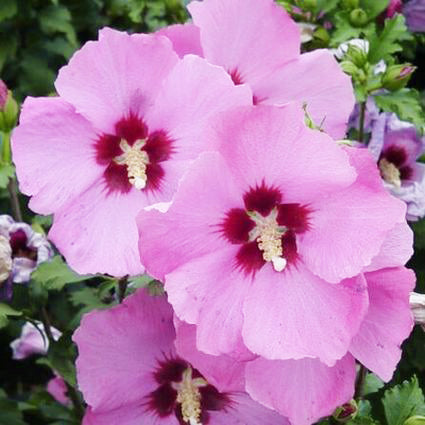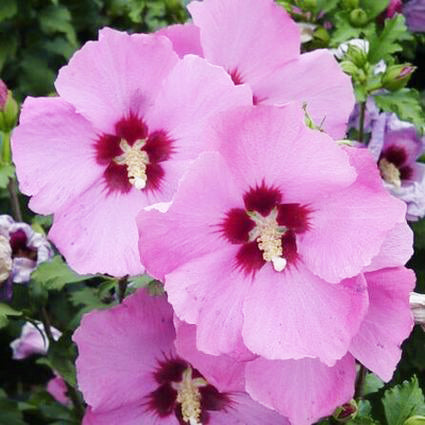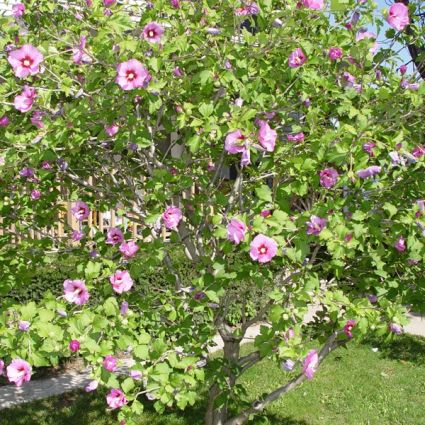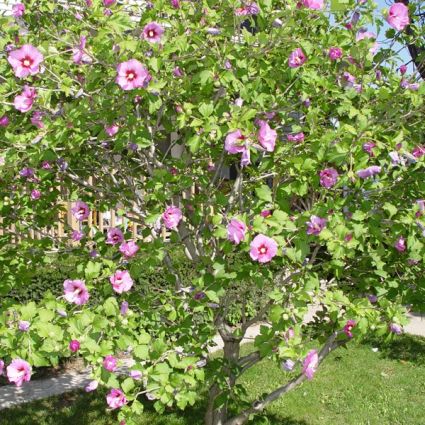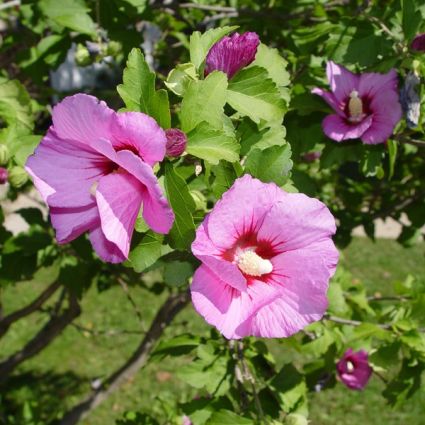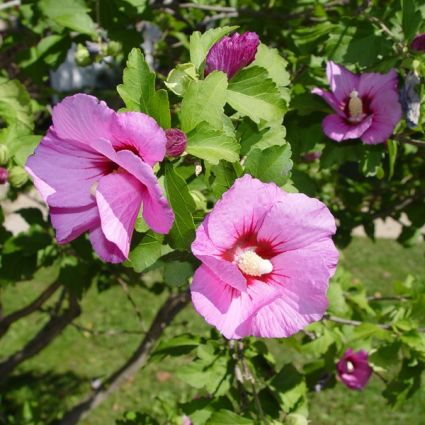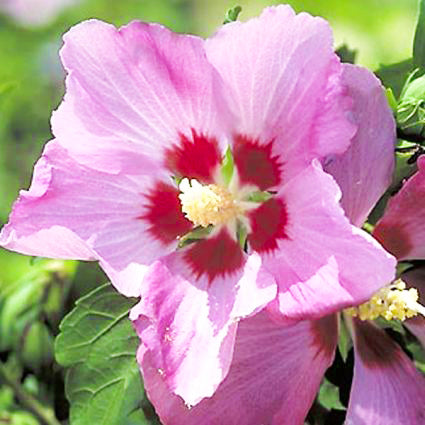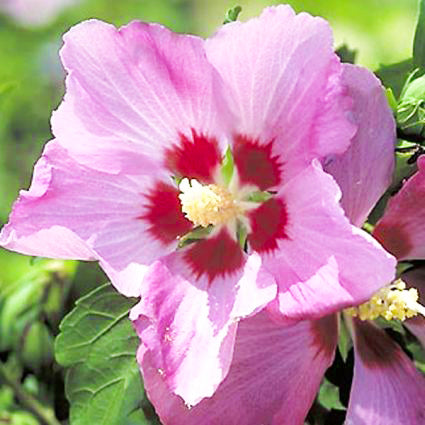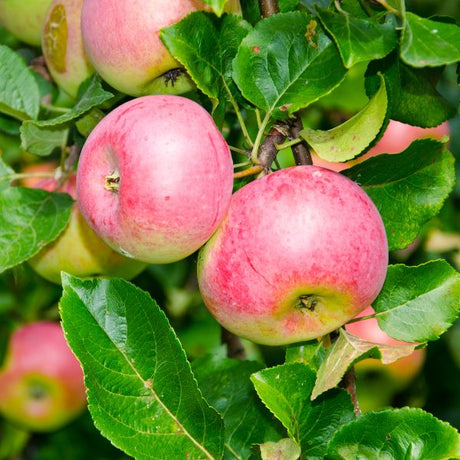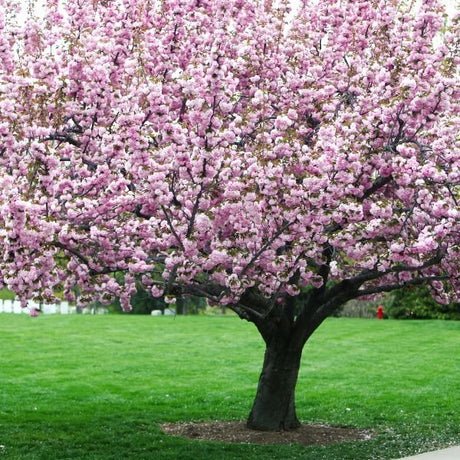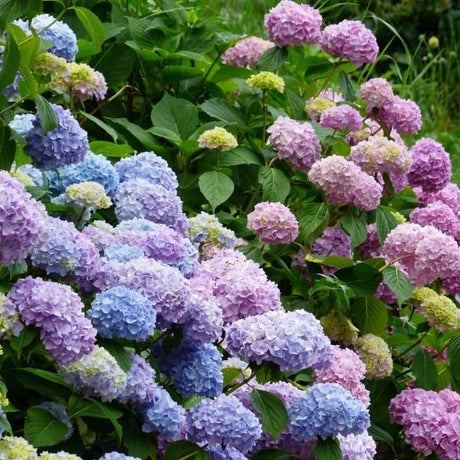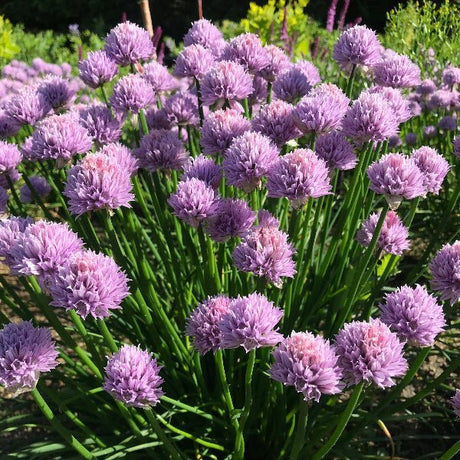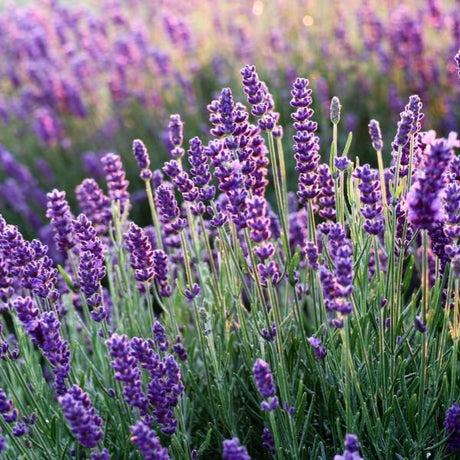Aphrodite Rose of Sharon
Hibiscus syriacus 'Aphrodite'
- Stay Protected with Plant Sentry ™
Aphrodite Rose of Sharon - #3 Container is backordered and will ship as soon as it is back in stock.
Plant Sentry™
Plant Sentry™

Plant Sentry™ Protected
Your order is protected by our compliance system that:
- Prevents restricted plants from shipping to your state
- Ensures plants meet your state's agricultural requirements
- Protects gardens from invasive pests and diseases
Delivery and Shipping
Delivery and Shipping
Delivery and Shipping
Fast, Safe Plant Delivery
Ships in 3-4 business days • Tracking provided • Weather protected
| Under $50 | $9.99 |
| $50 - $99.99 | $14.99 |
| $100 - $149.99 | $16.99 |
| $150+ | $24.99 |
✓ Zone-specific timing • ✓ Professional packaging • ✓ Health guarantee
Understanding Plant Options
Nature Hills offers plants in two main formats:
- Container Plants: Grown in pots with soil, sized by container volume and plant age
- Bare Root Plants: Dormant plants without soil, sized by height measurements
Container Plant Sizes
Container sizes indicate plant age and growing capacity rather than liquid volume equivalents. Our containers follow industry-standard nursery "trade gallon" specifications, which differ from standard liquid gallon measurements.
Young Plants (6 months to 18 months old)
| Container Size | Actual Volume | Metric Equivalent |
|---|---|---|
| 2" x 2" x 3" | 0.18 - 0.21 dry quarts | 0.20 - 0.23 dry liters |
| 4" Container | 0.31 - 0.87 dry quarts | 0.35 - 0.96 dry liters |
| 4.5" Container | 0.65 dry quarts | 0.72 dry liters |
| 6" Container | 1.4 dry quarts | 1.59 dry liters |
| 1 Quart | 1 dry quart | 1.1 dry liters |
| 5.5" Container | 1.89 dry quarts | 2.08 dry liters |
Established Plants (18 months to 2.5 years old)
| Container Size | Actual Volume | Metric Equivalent |
|---|---|---|
| 2 Quart | 2 dry quarts | 2.2 dry liters |
| #1 Container | 2.26 - 3.73 dry quarts | 2.49 - 4.11 dry liters |
| 5" x 5" x 12" | 3.5 - 4.3 dry quarts | 3.85 - 4.74 dry liters |
Mature Plants (2-4 years old)
| Container Size | Actual Volume | Metric Equivalent |
|---|---|---|
| #2 Container | 1.19 - 1.76 dry gallons | 5.24 - 7.75 dry liters |
| #3 Container | 2.15 - 2.76 dry gallons | 8.14 - 12.16 dry liters |
Large Plants (3-5 years old)
| Container Size | Actual Volume | Metric Equivalent |
|---|---|---|
| #5 Container | 2.92 - 4.62 dry gallons | 12.86 - 20.35 dry liters |
| #6 Container | 5.25 - 6.01 dry gallons | 23.12 - 26.42 dry liters |
| #7 Container | 5.98 - 6.53 dry gallons | 26.34 - 28.76 dry liters |
Bare Root Plants
Bare root plants are sold by height from the root system to the top of the plant. Plants may exceed minimum height requirements.
Common Sizes:
- Trees: 1 foot, 2 feet, 3 feet, 4 feet, 5 feet, 6 feet
- Shrubs & Perennials: 1 foot, 18 inches, 2 feet
Important Notes
Container Volume Specifications
- Trade Gallon Standard: Our containers follow industry-standard "trade gallon" specifications established by the American National Standards Institute (ANSI Z60.1) for nursery stock
- Volume Variations: Actual soil volume may vary due to plant root systems and growing medium settlement
- Age Indicators: Container size primarily indicates plant age and maturity rather than liquid volume equivalents
Growing Conditions
- Plant size can vary based on variety and growing conditions
- Container size helps indicate plant maturity and establishment level
- Larger containers generally mean more established root systems and faster landscape establishment
Seasonal Availability
- Bare root plants are available seasonally when dormant
- Container plants are available throughout the growing season
- Specific varieties may have limited availability in certain sizes
Questions?
For questions about specific plant sizes or availability, please contact our plant experts who can help you choose the right size for your landscape needs.
Plant Highlights
Aphrodite Rose of Sharon highlights at a glance!
-
Brand
-
Botanical Name
-
Growing Zones5, 6, 7, 8, 9
-
Mature Height
-
Mature Spread
-
Sun ExposureFull Sun
-
Moisture
-
Soil
-
Growth RateSlow
-
Flower Color
-
Fall Color
-
Pollinator FriendlyYes
-
Pollinator Required
-
Pruning Time
-
Bloom PeriodSummer, Fall
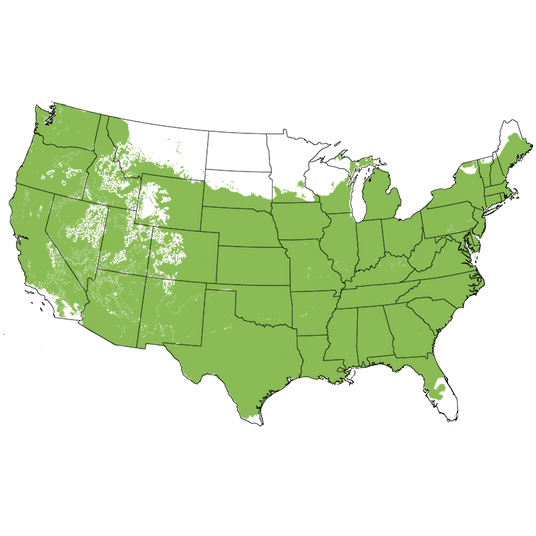
Growing Zones 5-9
Big pink and maroon bullseyes, Aphrodite was the Greek goddess of love and beauty! So it's no wonder the Aphrodite Rose of Sharon (Hibiscus syriacus 'Aphrodite') embodies its namesake! Closely related to Tropical and Hardy Hibiscus, so you know it's a gorgeous flowering ornamental shrub! The 4-inch, hollyhock-like rosy-pink flowers feature deeper red eyes and a slightly ruffled appearance to the delicate petals.
Also known as Althea, your Aphrodite will not only provide you with gorgeous flowers but will provide them for a very long time each growing season! It profusely blooms from early summer and into fall much to the delight of every hummingbird, bee, and butterfly in your immediate area!
The Aphrodite Rose of Sharon is an upright, deciduous shrub, growing into a vigorous, erect, multi-stemmed plant. It's the type of show that will be impossible to miss in your yard! The diamond-shaped, dark-green, toothed foliage completes the picture, a vibrant accompaniment to the brilliant flowers. Hardy throughout USDA growing zones 5 to 9, these are highly adaptable and versatile flowering bushes!
Planting and Application:
Aphrodite is a highly versatile plant, presenting a spectacular appearance as a single, specimen planting or en masse! Any way you use Althea, they'll win you over with their easy care nature and low maintenance growth, plus a long, late-season bloom of vivid flowers! Add a single focal point as an anchor or accent to Cottage gardens and foundation plantings. Create groupings to accent your front yard berms and Pollinator gardens to attract the attention of everyone (and everything with wings) around!
Plant several Althea as a hedge along your house or outbuilding, or group a few at the edge of a perennial bed for a tall, eye-catching splash of color. The open and airy branching is light and lively, but compact enough to still give you plenty of screening, and create the "living walls" of a garden room. Add as backdrops to Perennial and Rose gardens, as property-defining hedges, and both country and tropical-looking privacy!
- Prolific Rosy Pink Blooms & Darker Maroon Red Eye
- Birds & Pollinators Love the Nectar-Rich Blooms
- Starts Blooming When Other Shrubs Are Done for the Season!
- Upright, Rounded Form & Pretty Branching Structure
- Grow it in Large Containers for a Private Balcony for Years
- Stylish Flowering Privacy Hedge, Specimen & Backdrops
#ProPlantTips for Care:
Aphrodite is rather hardy, able to tolerate poor soils and some drought. It's able to handle heat and humidity, and can even survive in some urban conditions. Rose of Sharon loves sunshine! Plant it in a spot where they will get at least six hours of sunlight a day, but Aphrodite can handle a touch of afternoon shade in warmer climates. Provide a moderate amount of water on a regular basis. Use a three-inch layer of arborist mulch over the top of the root system to keep them nice and cool.
Apply a slow-release fertilizer designed for flowering plants at the same time. Deer tend to leave it alone, but hummingbirds and butterflies are sure to flock to its dramatic appearance in your yard. Mostly seedless in cooler climates, Althea can reseed and get messy in warmer climates, but a timely deadheading to nip off those seedpods before they mature and become a nuisance.
Aphrodite is also quite versatile, being adaptable to whatever shape and size you wish to impose upon it. This pretty shrub blooms on new wood. Prune Althea in early spring to either shape or control the height. You'll have flowers later that season, no matter how tightly you trim them in spring. You can even train these shrubs into multi or single-stemmed tree forms! Renewal prune every 3-5 years to keep the shrub growing to its fullest potential.
- Full Sun
- Moderate Moisture & Enriched Well-Drained Soil
- Rugged, Cold Hardy & Heat Tolerant
- Tolerates Salt Spray
- Vigorous & Very Low Maintenance
Long-lasting, showy blooms on an ornamental shrub, you can't go wrong with the goddess-like Aphrodite Rose of Sharon for your yard. Plant one today to begin reaping the rewards of this amazing ornamental shrub with the help of Nature Hills!
Tree Form vs. Shrub Form
The details make all the difference in a garden. At Naturehills.com, we understand that little things like what form a plant is can greatly impact how you plan your landscape. So before you buy, don't forget to check which form you're getting.
Tree Form:
These are plants that have one stem coming from the ground. Plants can also be considered single stem when lower branches are removed to raise the height of the branching to a more desired height. Sometimes, you will hear a tree form referred to as a single stem.
Shrub Form:
These are bushy plants with many stems and branchings close to the ground. They are referred to as shrubs or bushes and are often shorter than their tree forms.

